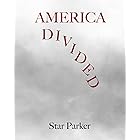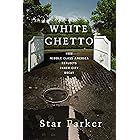| Kindle Price: | $9.49 |
| Sold by: | HarperCollins Publishing Price set by seller. |
Your Memberships & Subscriptions

Download the free Kindle app and start reading Kindle books instantly on your smartphone, tablet, or computer - no Kindle device required.
Read instantly on your browser with Kindle for Web.
Using your mobile phone camera - scan the code below and download the Kindle app.

OK
 Audible sample Sample
Audible sample Sample 


Uncle Sam's Plantation: How Big Government Enslaves America's Poor and What We Can Do About It Kindle Edition
Uncle Sam’s Plantation is an incisive look at how government manipulates, controls, and ultimately devastates the lives of the poor—and what Americans must do to stop it. Once a hustler and welfare addict who was chewed up and spit out by the ruthless welfare system, Star Parker sheds much needed light on the bungled bureaucratic attempts to end poverty and reveals the insidious deceptions perpetrated by self-serving politicians.
“Star Parker rocks the world. She is an iconoclast that must be listened to and reckoned with.” ?Sean Hannity
“Star Parker’s important new book helps advance the understanding—critical for all Americans—that prosperity does not come from government and politics but results from men and women of character and high moral fiber living and working in freedom.” ?Larry Kudlow
“Star Parker’s new book brings us back to eternal truths—faith, family, love, and responsibility.” ?Dr. Laura Schlessinger
“Casts new light on the redemptive power of freedom.” ?Rush Limbaugh
- LanguageEnglish
- PublisherThomas Nelson
- Publication dateAugust 16, 2010
- File size1440 KB
Customers who bought this item also bought
 The State of Black America: Progress, Pitfalls, and the Promise of the RepublicWilliam B. AllenKindle Edition
The State of Black America: Progress, Pitfalls, and the Promise of the RepublicWilliam B. AllenKindle Edition
Editorial Reviews
About the Author
Star Parker is president and founder of the Coalition on Urban Renewal and Education (CURE), a nonprofit center that addresses the impact of social politics on America's inner cities and the poor. Prior to her social activism, Parker was a single welfare mother. After turning to Christ, she returned to college, earning her B.S. degree, and then launched an urban Christian magazine. Now, she is a frequent lecturer at colleges and churches, a social policy consultant and media commentator, and a regular guest on national television and radio programs across the country, including Larry King Live, 20/20, and The Oprah Winfrey Show. Parker is also a syndicated columnist with the Scripps Howard News Service.
Product details
- ASIN : B007V8YSA2
- Publisher : Thomas Nelson; Revised edition (August 16, 2010)
- Publication date : August 16, 2010
- Language : English
- File size : 1440 KB
- Simultaneous device usage : Up to 5 simultaneous devices, per publisher limits
- Text-to-Speech : Enabled
- Screen Reader : Supported
- Enhanced typesetting : Enabled
- X-Ray : Not Enabled
- Word Wise : Enabled
- Sticky notes : On Kindle Scribe
- Print length : 278 pages
- Best Sellers Rank: #1,248,122 in Kindle Store (See Top 100 in Kindle Store)
- #186 in Rural Sociology
- #304 in Poverty Studies
- #321 in Social Services & Welfare (Kindle Store)
- Customer Reviews:
About the author

Discover more of the author’s books, see similar authors, read author blogs and more
Customer reviews
Customer Reviews, including Product Star Ratings help customers to learn more about the product and decide whether it is the right product for them.
To calculate the overall star rating and percentage breakdown by star, we don’t use a simple average. Instead, our system considers things like how recent a review is and if the reviewer bought the item on Amazon. It also analyzed reviews to verify trustworthiness.
Learn more how customers reviews work on Amazon-
Top reviews
Top reviews from the United States
There was a problem filtering reviews right now. Please try again later.
Her arguments and solutions are thoughtful and powerful and would change the not only the black community, but America and the world. Unfortunately, since this book was written years ago, little has changed. Uncle Sam’s Plantation is an equal opportunity enslaver. The war on America is alive and well.
Star Parker joins the ranks of courageous leaders such as Dr. King and Dr. Ben Carson who dare to challenge the status quo. However as she points out, the response by the black community to achievers is often to dismiss them as sellouts and voluntary slaves. This criticism is not so subtle irony from those who themselves are on the Plantation that Ms. Parker has defied. But for someone facing poverty, death and the ghetto it is a logical if not hopeless response.
The solution to the dark state she describes, I believe, is not necessarily in her ideas, powerful as they are. The solution is Ms. Parker herself. It is her story; it is her life. If she is dismissed as a mere aberration, I would submit that she is not alone; not by a long shot. I venture there are thousands surrounded by poverty, death, darkness and hopelessness who have chosen to stay the course and fight. They fight to raise their kids. They take on multiple jobs. They are dads, moms and grandmas. You will find them in church on Sunday, in weekly Bible studies and prayer meetings. Their children are disciplined students, athletes and soldiers. They understand the siren call of the Plantation and they reject it. They, like Star, have chosen to fight rather than surrender. They don't think of themselves as heroes. But they are. They are also hope.
It is these silent heroes who I believe hold the key to the black community and our country. Their testimony cannot be refuted. They are the proof.
The question is how do we celebrate these heroes? How do we get their stories out? How do we hold up their example so that good people can see?
Another one of her books, White Ghetto, is very good as well. Check if out if you liked Uncle Sam's Plantation. Or, if you are still a die hard, true-believer that Socialism is the only "true religion", then you will hate White Ghetto, too. Read it anyway. The truth makes you more angry than lies. Count on it.
Star Parker is the real deal. Godspeed, Sister.
1. Dismantle so-called multiculturalism;
2. Abolish affirmative action;
3. Abandon the faith-based initiative;
4. Personalize welfare services;
5. Allow school choice; and
6. Personalize Social Security.
She wants people to take responsibility for themselves and their neighbors. The personal initiatives that will follow will draw people out of poverty.
Multiculturalism teaches that all values are equally good. Those who accept this teaching logically conclude that there is no measure of right and wrong. The only “morality” is legislated morality. To counter multiculturalism, we must teach that there is absolute truth, that we must teach virtues. She suggests that we follow the arguments C.S. Lewis made in his book, The Abolition of Man.
Affirmative action confuses culture and ethnicity. It promotes ethnic entitlement, so Blacks seek equal outcomes rather than equal opportunities. Economic equality does not come from coercion but from work ethic. Although the country was founded on the Judeo-Christian culture, today’s cultural divide is due to a lack of common culture. We need a common culture.
The faith-based initiative is a government-controlled program for faith-based charity. The government grants overwhelm personal charities that include evangelization, which is the usual motivation for faith-based people. The size of the government aid makes the recipients complacent. Charity thereby loses its heart because the donor is donating impersonal support. The government should get out of the business of social programs and the religious communities should step in.
By personalizing welfare services, the aid is person-to-person, instilling virtue by the generosity of the donor and gratitude of the recipient. The incentive is to bring the person out of poverty, not to prolong the poverty so the donor’s job is secure. Star Parker suggests that charitable empowerment zones (similar to economic empowerment zones) be established such that tax credits be given to donors to charities in these zones. In parallel to the zone definitions, the government would give those in poverty vouchers that can be redeemed only by the recipient .
Education choice exists today only for the wealthy. Public-school education is value-free, teaching not neutrality but multiculturalism – there are no absolutely good values. All parents should be able to send their children to schools that reinforce their values. One mechanism would be to provide all children with vouchers.
Social Security takes approximately 15% from a worker’s pay, an amount the poor cannot afford. Many of the poor die before collecting Social Security. Not even the children of the poor benefit. Retirement funds should be managed by the worker, in part because the unused funds will go to the children.
The hope for the poor is not found in Uncle Sam’s plantation. It is found in an attitude change, one what is optimistic and forward-thinking. Hope is found in strong moral and ethical standards. Hope is found in heartfelt, genuine charity and in durable marriages and families. Hope is found in people exercising their God-given talents and gifts in the marketplace, unencumbered by excessive taxation and regulation. Hope is found in the hearts of any and every American who makes the conscious decision to leave poverty and strive for something greater.










